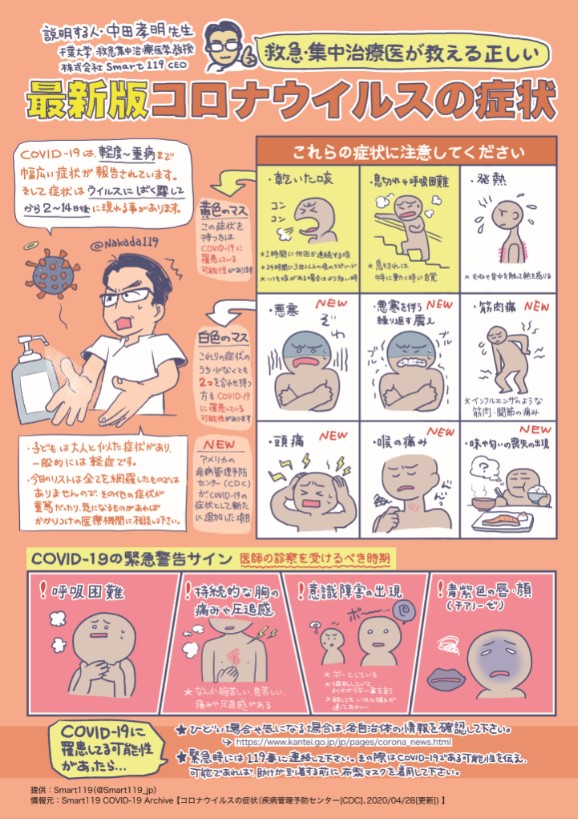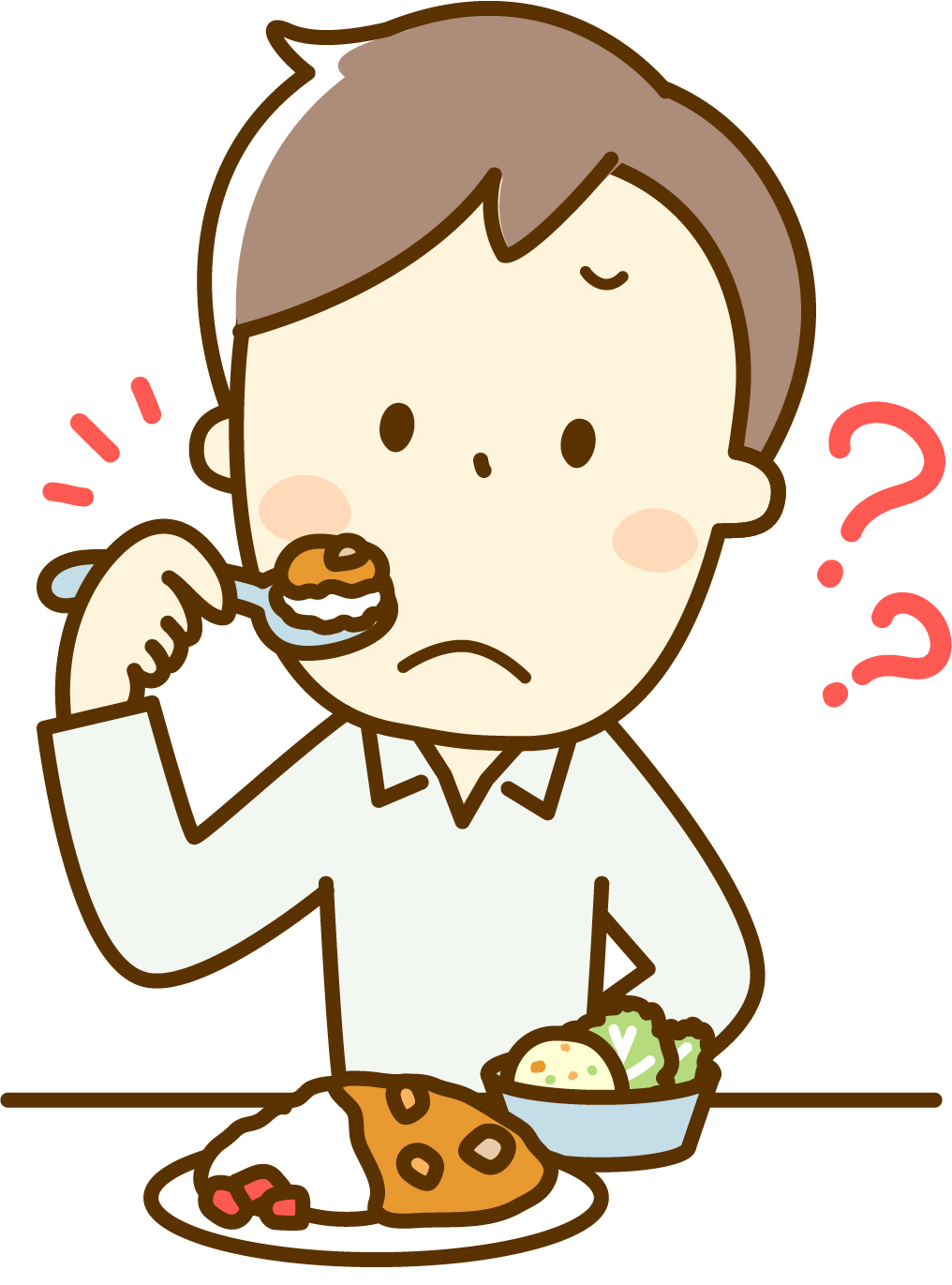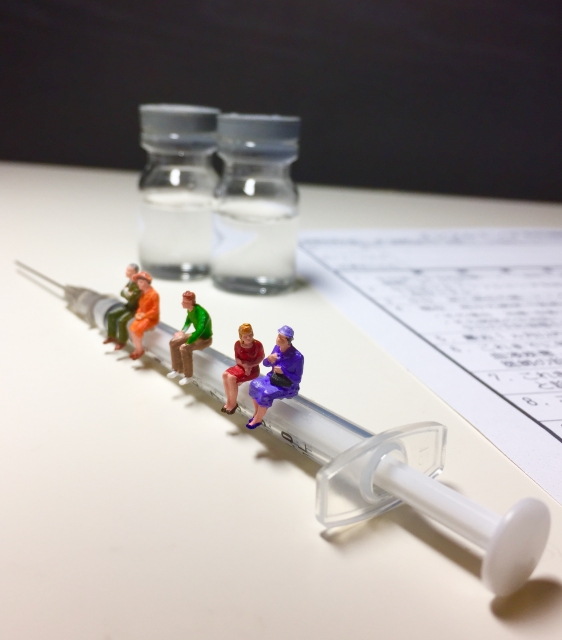It is no exaggeration to say that 2020 was swayed by COVID-19.
The Expat’s Guide to Japan is now sharing information on how to prevent, deal with the viruses and so on with the help of Smart119.
The 5th topic in the series is “Latest Information on the COVID-19 Symptoms”.

There are many “rumors” about the symptoms of the COVID-19, and no one actually knows what is right.
Let us gain a better understanding and the right knowledge about the symptoms here to be able to face your symptoms calmly and act accurate when you feel unwell.
It has been reported that the COVID-19 causes a wide range of symptoms from mild to severe illness. And the symptoms may appear 2-14 days after exposure to the virus.
Be aware of the following symptoms.
If you have any one of the following symptoms, you may have COVID-19.
– Dry Cough; Several consecutive coughs in an hour. Consecutively cough three or more times in 24 hours. Cough more than you usually do even when you cough on regular basis.
– Shortness of breath and dyspnea; Shortness of breath is especially noticeable when moving.
If you have at least two of the following symptoms, you may have the virus.

Loss of taste and smell
– Fever; feel the heat on your chest or back
– Chills (NEW)
– Repeated tremors with chills (NEW)
– Muscle pain (NEW); flu-like muscle and joint pain
– Headache (NEW)
– Sore throat (NEW)
– Loss of taste and smell (NEW)
*(NEW) =New items added to the list of COVID-19 symptoms by The U.S. Centers for Disease Control and Prevention (CDC).
– Children have symptoms similar to those of adults and are generally milder.
– This list does not cover everything. Consult your health care provider if any other symptoms are serious or of concern to you.
COVID-19 Emergency Warning Signs
*When to seek medical attention
– Dyspnea.
– Persistent chest pain or pressure; when there are some kind of chest tightness, breathlessness, pain or pressure
– Appearance of unconsciousness; the person is dazed, confused and says things that are not understandable, and he/she seems different from usual when speaks.
– Blue-purple lips and face (cyanosis)

Persistent chest pain or pressure
☆If your symptoms are severe or if you are concerned about it, please check with your local government for information.
Click here
☆ Call 119 in case of emergency. When you do so, inform them the possibility of COVID-19. Wear a cloth mask before help arrives if possible.
Uncertain things & things under study
・The effects of antiviral drugs such as Avigan
・Mortality rate and antibody (defense)
・The difference in type and the season of epidemic
・Accuracy problems in inspection
・Fact and the reason that children are less likely to become seriously ill

Many things uncertain & under study
Points of measures
・It is highly possible that the virus has already infected your surroundings when you show those symptoms.
・Everyone including those who have no symptoms need to wear masks to prevent its spread.
・Social distance is also effective until an effective vaccine/therapeutic drug is available.
Smart119
*The article was written by Professor Takaaki Nakata (Professor of Emergency Intensive Care Medicine, Chiba University) who teaches at Chiba University, and Toshifumi Taniguchi (Lecturer of Internal Medicine, Chiba University Hospital).
The attached manga-style illustration is also supervised by the two above.
Click here to Download the illustration
*What is Smart119?
Smart119 Co., Ltd. is a venture company established by an active emergency doctor from Chiba University School of Medicine.
More about Smart119
